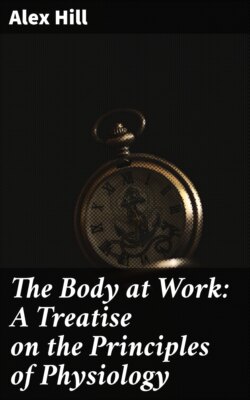Читать книгу The Body at Work: A Treatise on the Principles of Physiology - Alex Hill - Страница 3
На сайте Литреса книга снята с продажи.
PREFACE
ОглавлениеTable of Contents
Few subjects are as well provided with text-books as physiology; yet it may be doubted whether the interests of the amateur of science have been adequately cared for. From his point of view there are certain obvious drawbacks to even the most admirable of text-books. Writing for medical students, their authors assume that their readers have passed through two years of preliminary training in physics, chemistry, and biology; they take for granted that they will have the privilege of supplementing their study of the theory of physiology with practical work in a laboratory; they treat all parts of the subject with equal thoroughness. In this book I have endeavoured to describe the phenomena of life, and the principal conclusions which have been drawn as to their interdependence and as to their causes, in language which will be understood by persons unacquainted with the sciences upon which physiology is based. I have omitted all reference to experimental methods and to the technique of the science, save when a knowledge of the means by which information has been obtained is essential to a comprehension of its bearing. I have passed over such sections of the subject as are generally considered unsuitable for ordinary discussion. And since this book neither aims at being an introduction to the systematic study of physiology, nor poses as an aid in the preparation for professional examinations, I have treated with some thoroughness the more recondite and the more suggestive results of recent research, and have tried to indicate the trend of modern thought regarding problems as yet unsolved. I have endeavoured to reflect the intrinsic interest of the science apart altogether from its medical applications.
An author who attempts the popular exposition of a science must stand sufficiently far away from his subject to lose sight of its details, whilst keeping its outlines clearly in view. The difficulty of finding such a position is probably greater in the case of physiology than in that of any other science. Few of its conclusions are indisputable—even those which seem to be most in accord with the balance of evidence. If my treatment of any vexed questions is unjustifiably dogmatic, this will, I trust, be attributed to the desire to present a definite picture, and not to forgetfulness of considerations which seem to call for qualified statements. All physiologists will agree that a book which recorded every piece of evidence which is difficult to reconcile with the views generally adopted would not only extend to an inordinate length, but would leave a very indefinite impression on the mind of the reader.
In many cases the value of a conclusion depends upon the reputation for insight and accuracy of the physiologist who recorded the observations upon which it is based. It is no want of appreciation of the genius of the workers who have contributed most largely to the advance of the science which has led me to omit, save in a few classical instances, the names of all authorities. It is solely due to a desire to lighten this book of all details not essential to the comprehension of the propositions which it sets forth.
The illustrations are reproductions of blackboard drawings. A few of them have already appeared in my Physiologist’s Notebook and Primer of Physiology; but the large majority are now printed for the first time.
ALEX HILL.
November, 1908.
